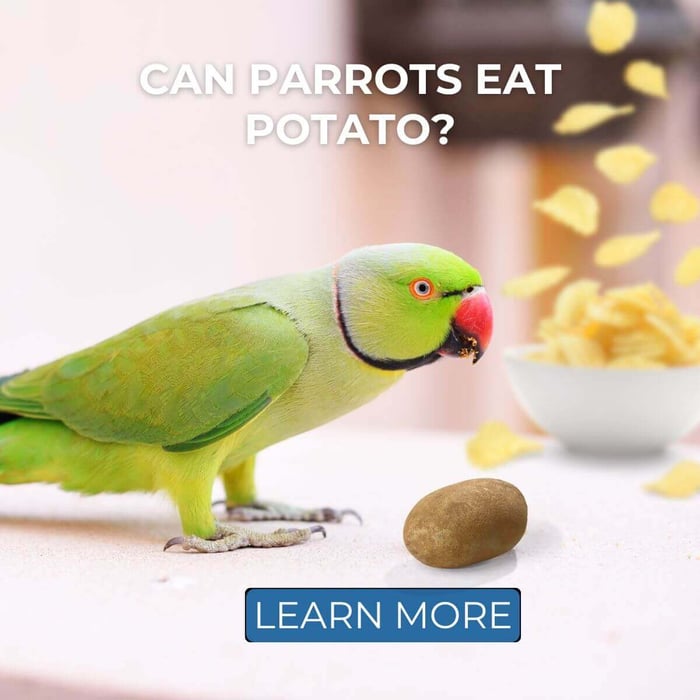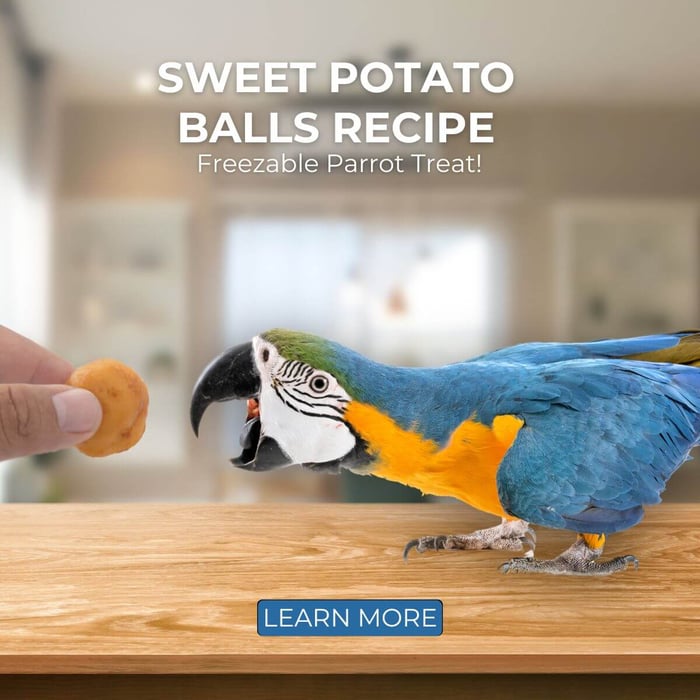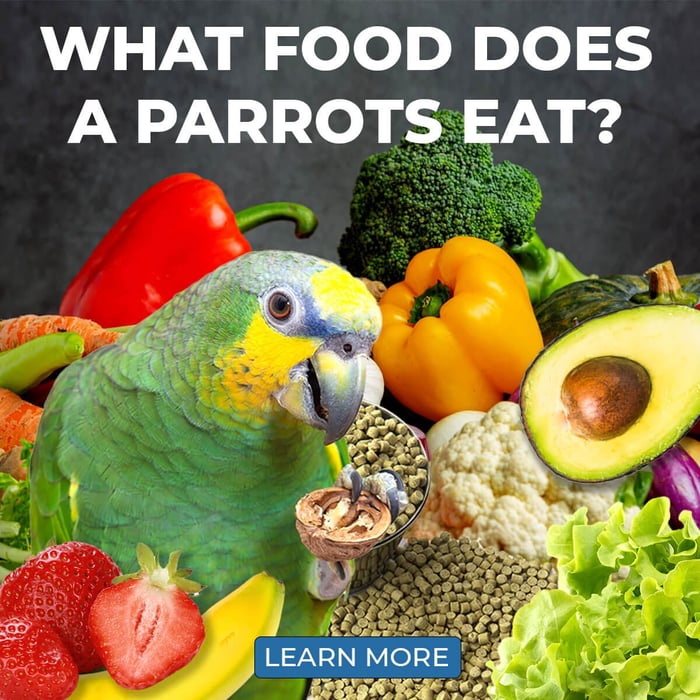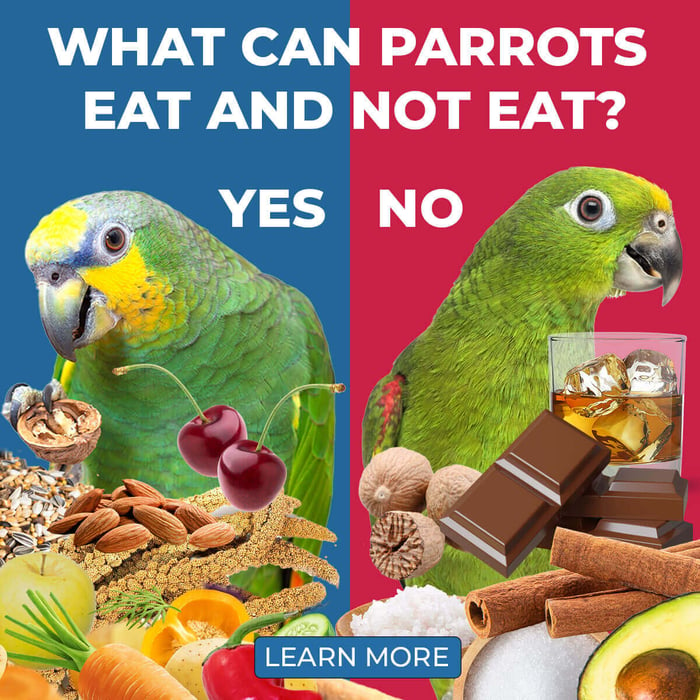Can Parrots Eat Boiled Eggs?
If you’re new to being a parrot owner or just trying to expand your feathered pet’s diet, you may be asking yourself: can parrots eat boiled eggs? Eggs are a healthy choice for us humans, but does the same go for a parrot?
The short answer is yes; your parrot can have some boiled eggs. If you’d like to know more about how much to feed, which parrots benefit from a little boiled egg in their diet, how to feed eggs and more, keep reading!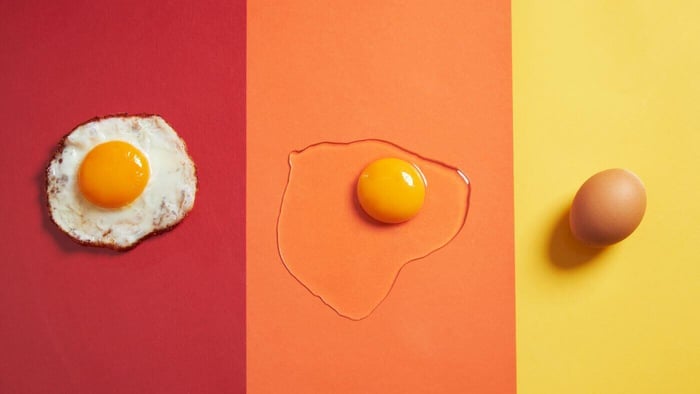
Can parrots eat boiled eggs?
In case you didn’t know, some birds actually eat eggs. Although it may sound cannibalistic and just plain odd, any chicken farmer will tell you that their hens will gladly gobble up chicken eggs (and any other type of egg, for that matter!). The practice isn’t as common in wild parrots, but nutrient-starved hens may resort to consuming part of the eggs they laid in order to replenish calcium and other important nutrients. If they do come across another bird’s eggs, they will definitely eat them.
In captivity, you can feed your parrot some boiled chicken eggs on a regular basis. Goose, duck and other egg types are also fine. It shouldn’t be part of your bird’s daily diet – which should consist of complete parrot pellet food and plenty of fresh vegetables – but it can make a great weekly addition.
So the answer to the question Can Parrots Eat Boiled Eggs is definitive yes?
Why should you feed boiled eggs?
Eggs have been proven to include highly nutritious elements. Elements like protein, calcium and vitamin A are vital not only to humans but also to parrots and other species of pet birds. This comes in handy, given how cheap eggs are! You probably already have them on hand.
Potential health benefits of feeding eggs to parrots
Studies show that there are plenty of benefits when parrots are fed eggs. This especially applies to hens that are laying themselves. Producing those eggs takes a lot out of a bird, so it can be a good idea to feed a little chicken or other egg types to ensure they don’t become nutrient-starved.
Did you know? Some parrot owners who don’t want to breed their birds will feed hens their own eggs. You can just quickly boil them and give them back to the bird. It sounds gross, but again, she may really need those nutrients!
Vitamin A
Vitamin A is a crucial nutrient not only for animals in general but also for birds. Deficiency in vitamin A can lead to weak bones, nails, weakened beaks, and loss of feathers. Vitamin A is essential for healthy eyesight, hearing, and the growth of bones.
Proteins
Proteins serve as a crucial nutrient for parrots. Protein components help build muscles and aid in maintaining blood flow and ensuring healthy muscles. They also help with proper immune system functions, reducing stress and helping feathers grow healthy. Additionally, proteins are vital because they help circulate amino acids through the body. These amino acids are essential for the functioning of the brain. The protein creates neurotransmitters that deliver messages to the brain exceptionally well.
All of the above is why studies propose a 10 to 20 per cent protein intake. Boiled eggs can be beneficial in this.
Calcium
Among the elements found in eggs is calcium, which, among other advantages, helps in the development of unborn chicks. If your parrot is laying eggs, she will absolutely need plenty of calcium in order to produce healthy eggs. Parrots with enough calcium in their bodies lay healthier eggs that have stronger shells.
Calcium can also help regulate birds’ heartbeats, as well as the functionality of the nervous system. It helps keep claws, beaks, and bones healthy. The mineral is vital for the body’s functionality and bones.
Choline
Choline is a nutrient that helps in brain growth and also aids in maintaining the normal functioning of the nervous system. Choline is a nutrient notably found in eggs, specifically the egg yolk.
Vitamin D
In nature, vitamin D occurs in two forms. Vitamin D2 is found in plant sources that are ripened by the sun, while vitamin D3 is produced by the bird itself with the help of sunlight and is also found in animal products like eggs. Because captive parrots don’t tend to get a lot of direct sun, supplementing their diet with the occasional bit of egg can be helpful.
In order to “super-charge” the eggs they feed, breeders actually tend to add mashed vitamin D3 supplements to the mix.
How to prepare eggs for your parrot
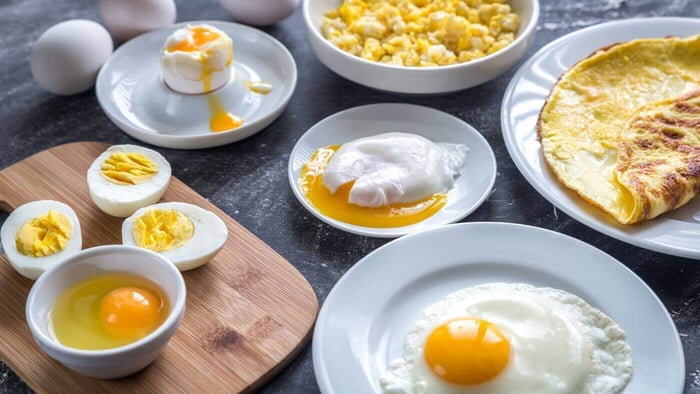
OK, so we’ve concluded that eggs are definitely a healthy addition to your parrot’s diet in small doses. But how should you prepare eggs for your feathered pets? A boiled egg is a great option, but what about scrambled or raw? Let’s have a look at the best ways to feed this nutritious food.
Can parrots eat raw eggs?
Yes, parrots can eat raw eggs, as long as you’re 100% sure the egg in question is still in date. After all, this is what they would do in the wild as well: there’s no one out there to prepare a nice scramble for them.
We don’t recommend feeding whole raw eggs for two reasons. First off, while parrots can eat eggshells, large pieces can pose a choking risk for birds that aren’t used to eating them. Secondly, an entire chicken egg would be way too much of a good thing for your feathered pet! Larger birds could have a whole quail egg if you have those on hand, though.
Can parrots eat fried eggs?
We humans love a good fried egg, but what about your parrot? Because fried implies the use of plenty of oil, you’re best off skipping this option. That being said, if you like to prepare eggs for yourself without using a lot of oil, you can absolutely share a bit with your bird. Just reserve a piece before you add salt and see what it thinks!
Can parrots eat scrambled eggs?
Parrots can feed on scrambled eggs without issues as long as you use minimal or no oil. You should also refrain from adding salt and most seasoning mixes, although some pure powdered seasoning, like paprika, is fine. Be sure to let your parrot’s portion cool before feeding.
Many birds love the soft texture and attractive colour of scrambled eggs.
What’s the best way to feed eggs?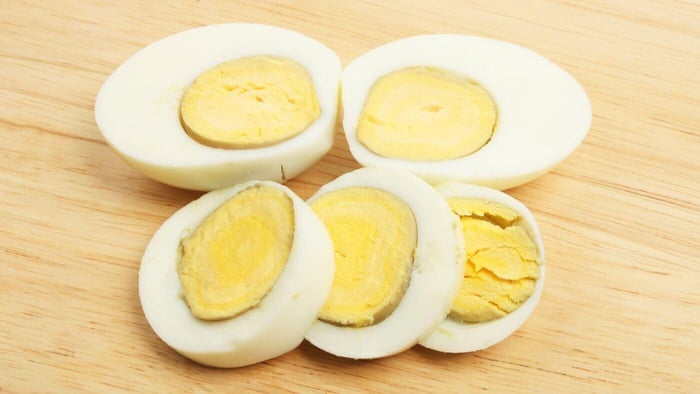
All in all, our personal favourite way to feed eggs to our parrots is by boiling them. Hard-boiled eggs are safe, free of salt and other additives, and can be mashed or left whole according to our birds’ preferences. They’re also easy to mix into a portion of chop or other types of prepared parrot food.
If you’re going to feed a boiled egg, don’t forget to offer part of the eggshell as well. Because it has been boiled, it will be free of any contaminants, and it’s actually a health supplement that’s high in essential calcium. You can crush the shell into small pieces before offering it to your bird.
Be sure to remove any uneaten egg from your bird’s cage after a maximum of 12 hours to prevent bacteria growth.
How often should parrots eat eggs?
Most parrots will eat as many eggs as you offer them, forgetting that they’re mostly herbivores and that this food item is much too high in proteins and fat for them to have a lot of!
The egg should be fed in moderation unless you’ve got a laying hen on your hands, which she can have a little bit of daily. Otherwise, offering a few small pieces up to half an egg (depending on your parrot’s size) is a better idea.
Parrot Food Containing Egg Mix.
Another alternative to feeding fresh eggs is a complete parrot food or parrot seed mix that has added egg to its formula. There are plenty of brands that specialise in egg parrot food for pet birds. You can choose from Organic pellets, Seed Mix with added egg or just an egg parrot food that you can mix your add yourself to your bird’s diet. Using egg parrot food has some advantages to offering fresh eggs. It removes the risk of feeding old or contaminated eggs to your pet.
Conclusion: Can parrots eat boiled eggs?
Parrots can eat a bit of egg from time to time: this food is full of essential nutrients. Eggs are easy to find and inexpensive. It’s easy to boil a big batch to eat yourself and share with your bird. Do remember to practice good hygiene in order to prevent problems!+
Want to know more about parrot diets? Check out our range of informative articles on parrot care: https://parrotessentials.co.uk/blog/category/parrot-care

